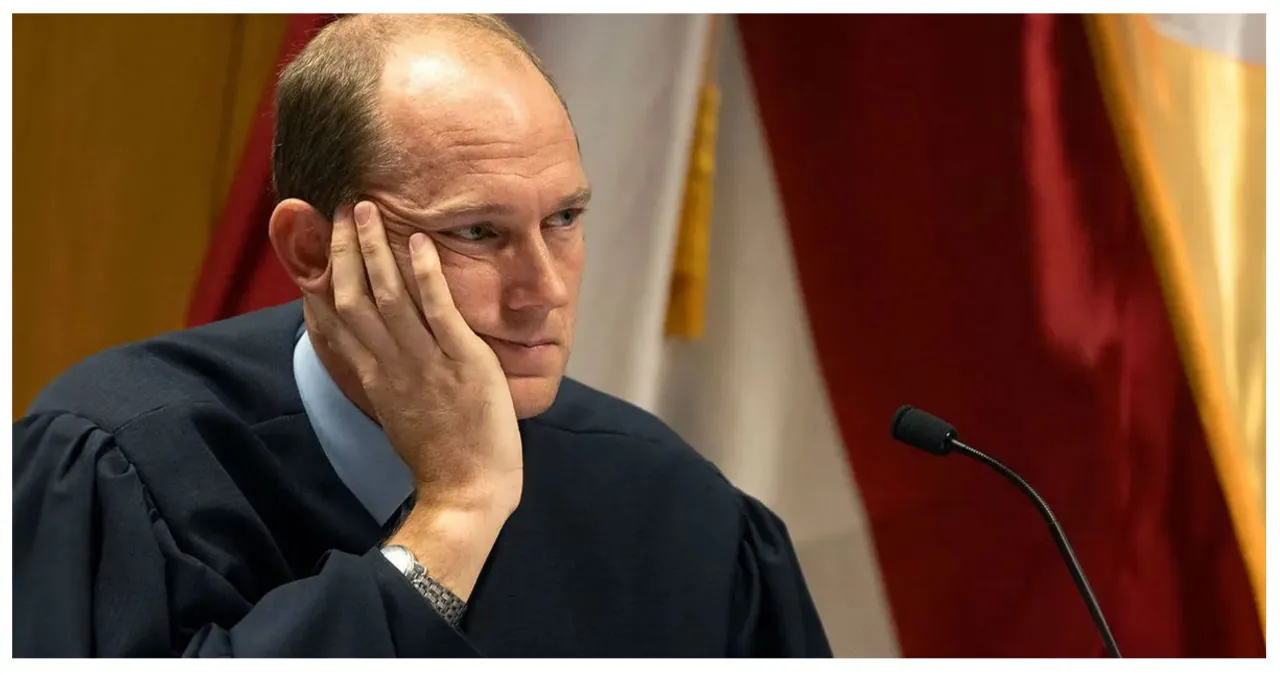The judge in charge of the Georgia election subversion case involving Donald Trump dismissed six counts from the indictment on Wednesday. Among these were three charges against the former president. However, the judge also ruled that prosecutors have the option to pursue these charges again in the future.
In his order, Judge Scott McAfee stated that he is dismissing six counts that charge Trump and several co-defendants with soliciting public officials to break the law. The reason for the dismissal is that although these counts contain all the necessary elements of the crimes, they lack sufficient detail regarding the nature of their commission.
According to McAfee, the information provided to the Defendants is insufficient for them to effectively prepare their defenses. He argues that there may be numerous ways in which the Defendants could have potentially violated the Constitutions and the statute.
The court’s decision impacts three out of the 13 felony counts that Trump is currently facing. However, it does not pertain to the main accusation of a racketeering conspiracy aimed at overturning the 2020 election. The charges that were dropped also involved Mark Meadows, the former chief of staff, Rudy Giuliani, the former Trump lawyer, John Eastman, the architect of the events on January 6th, and two lawyers from Trump’s campaign.
According to The New York Times, Georgia State University Law Professor Anthony Michael Kreis has stated that the recent ruling does not diminish the significance of the racketeering charge, which continues to be a key aspect of the case. Kreis further suggests that prosecutors may have the opportunity to present revised versions of the dismissed charges to a grand jury, providing more specific details.
“I believe that the recent setback for the DA is just a small obstacle and not indicative of a major problem,” Kreis expressed in an interview with The Guardian. “The constitutional basis for the charges related to the oath of office was never entirely clear. I expect that the DA’s office will refine their legal theory and present it again to the grand jury.”
Jonathan Turley, a law professor at George Washington University, cautioned that if prosecutors decide to pursue a superseding indictment, it could pose challenges in conducting the trial before the election.
“He tweeted that this does not disable the case, but it poses another setback for the prosecution as they await the disqualification decision.”
Looking for a convenient way to stay updated on all the news and commentary Salon has to offer? Look no further than our morning newsletter, Crash Course. Subscribe today for a daily wrap-up of all the latest happenings.
According to CNN legal analyst Norm Eisen, Judge McAfee’s ruling on Wednesday could be seen as a sign that the judge is unlikely to disqualify Willis.
According to Eisen, if Willis were to be disqualified, the judge would not have taken the time to write such a detailed order. This suggests that the judge may be busy and disqualifying Willis would effectively pause the case for a while. Eisen also points out that McAfee’s actions may be a way to give something to Trump, potentially allowing him to maintain a balance if he rules in favor of Willis on disqualification.
According to Eisen, the indication provided is mild and not strong. He suggests that the individual may be thinking differently. However, Eisen also mentions that this mild indication reinforces his strong view on the law and evidence, indicating that disqualification does not apply. He clarifies that this indication is not a strong indicator but rather a possible hint.
Kreis showed agreement with Eisen’s theory, stating, “I think Norm may be right here,” in a tweet.

